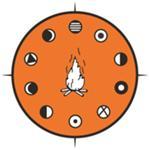Declaration of the AFNQL Council of Elected Women - International Day of Remembrance and Action on Violence against Women Français
WENDAKE, QC, Nov. 25, 2020 /CNW Telbec/ - On November 25, 2020, the AFNQL Council of Elected Women wishes to mark the National Day of Remembrance and Action on Violence against Women. In Canada, Indigenous women and girls remain significantly more at risk than any other group of experiencing violence in all its forms. They are over-represented in the statistics of violent victimization, disappearance and homicide.
In 2020, this violence against women and girls, both Indigenous and non-Indigenous, can no longer be tolerated. There is an urgent need to act collectively to end the unacceptable. Chief Adrienne Jérôme, co-spokesperson for the AFNQL Council of Elected Women, underlines the importance of denouncing these situations "so that women can feel safe, at home and in their workplace, in their community and in urban areas, and everywhere in society."
This date also marks the start of Quebec's annual campaign 12 Days of Action to end violence against women. This is an opportunity to collectively reflect on the need to support and accompany all those who are victims of violence. It is also an opportunity to remind the various governments of their responsibility to make concrete commitments, in particular so that there are more services offered to help victims, and to undertake awareness-raising and prevention campaigns.
"Despite significant progress, it is important to commit to achieving equality between women and men," says Grand Chief Verna Polson, co-spokesperson for the AFNQL Council of Elected Women. The mobilization of everyone is called for to end this violence against women. The Council of Elected Women points out that violence against Indigenous women is well documented in the reports of the National Inquiry into Missing and Murdered Indigenous Women and Girls (MMIWG) and that of the Inquiry Commission on relations between Indigenous Peoples and certain public services: listening, reconciliation and progress (CERP).
Women are very often the pillar of the family in communities and they assume important responsibilities within their families. The violence they have suffered has left gaping wounds and all of Quebec was able to witness it with the tragic death of our sister Joyce Echaquan. This violence has no place!
About the AFNQL Council of Elected Women
The AFNQL Elected Women's Council shall consist of all duly elected women Chiefs or councillors from each of the First Nations communities in Quebec and Labrador. Through the establishment of an AFNQL Elected Women's Council, this affirms the importance of building and strengthening partnership between elected men and women of the AFNQL, in all levels of decision-making within the AFNQL, as an integral step in ensuring an equitable society.
SOURCE Assembly of First Nations of Quebec and Labrador

Alain Garon, Communications Advisor, (418) 254-4620, [email protected]

Share this article